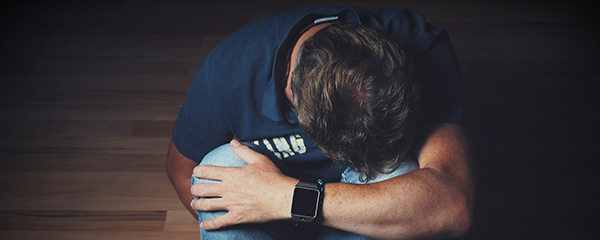Depression is one of the most common mental disorders in the U.S. While both men and women suffer from depression, their willingness to talk about their feelings may be very different. Research shows that men are less likely than women to recognize, talk about, and seek treatment for depression. More than 6 million men in the U.S. suffer from depression each year.
Traditional signs of depression (sadness, worthlessness, excessive guilt) may not represent a man’s bout with depression. Instead, men may express their depression through increased fatigue, irritability and anger, loss of interest in work or hobbies, and sleep disturbances. The three most commonly overlooked signs of depression in men are:
Physical pain. Sometimes depression in men shows up as physical symptoms—such as backache, frequent headaches, sleep problems, or digestive disorders—that don’t respond to normal treatment.
Anger. This could range from irritability, sensitivity to criticism, or a loss of your sense of humor to road rage, a short temper, or even violence. Some men become abusive or controlling.
Reckless behavior. A man suffering from depression may exhibit escapist or risky behavior such as pursuing dangerous sports or driving recklessly. They may also drink too much, abuse drugs, or gamble compulsively.
Physical pain. Sometimes depression in men shows up as physical symptoms—such as backache, frequent headaches, sleep problems, or digestive disorders—that don’t respond to normal treatment.
Anger. This could range from irritability, sensitivity to criticism, or a loss of your sense of humor to road rage, a short temper, or even violence. Some men become abusive or controlling.
Reckless behavior. A man suffering from depression may exhibit escapist or risky behavior such as pursuing dangerous sports or driving recklessly. They may also drink too much, abuse drugs, or gamble compulsively.
The most important thing to know about depression is that you don’t have to tough it out on your own. There are treatment options that offer healthy coping skills that may include:
Goals. Set realistic goals and prioritize tasks.
Support. Seek out emotional support from a partner or family or friends.
Coping. Learn ways to manage stress, such as meditation and mindfulness, and develop problem-solving skills.
Decisions. Delay making important decisions, such as changing jobs, until your depression symptoms improve.
Activities. Engage in activities you enjoy, such as ball games, fishing or a hobby.
Health. Live a healthy lifestyle, including healthy eating and regular physical activity, to help promote better mental health.

